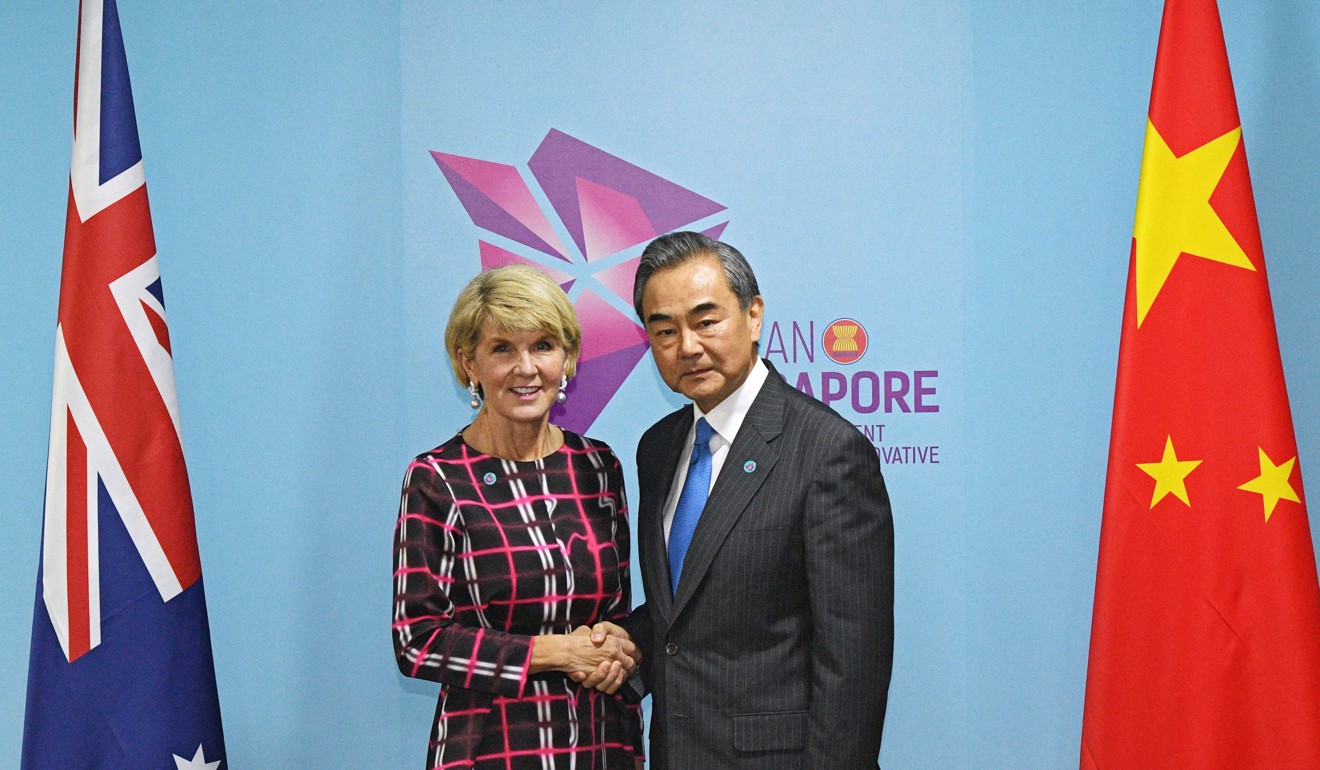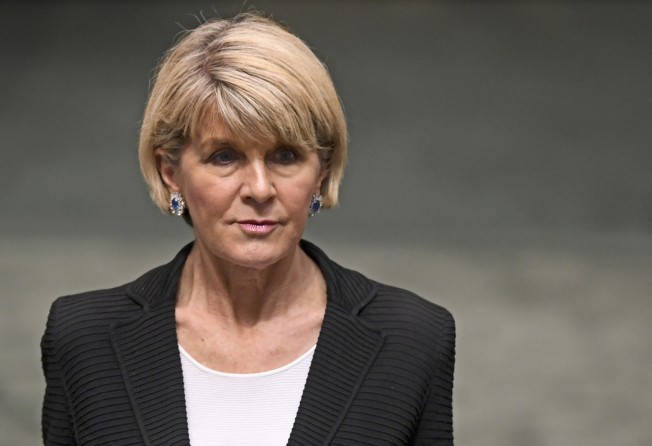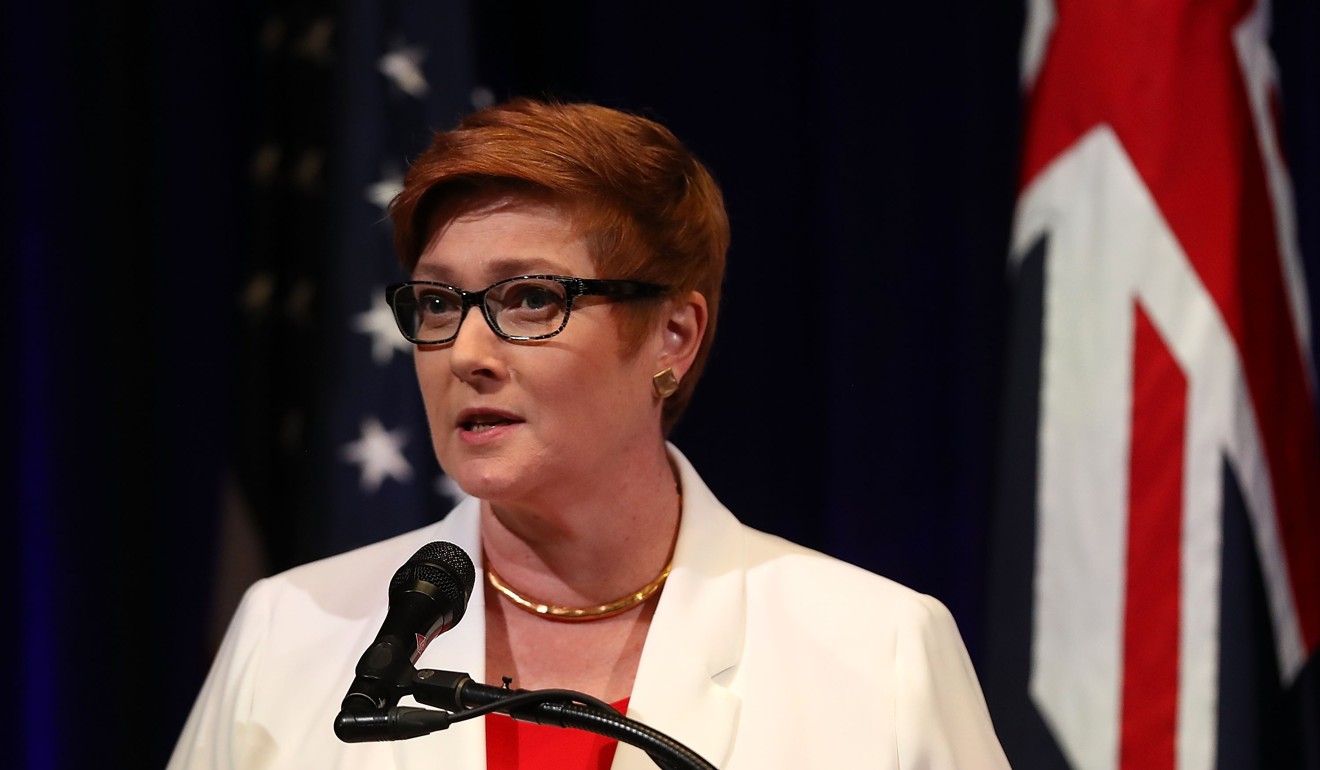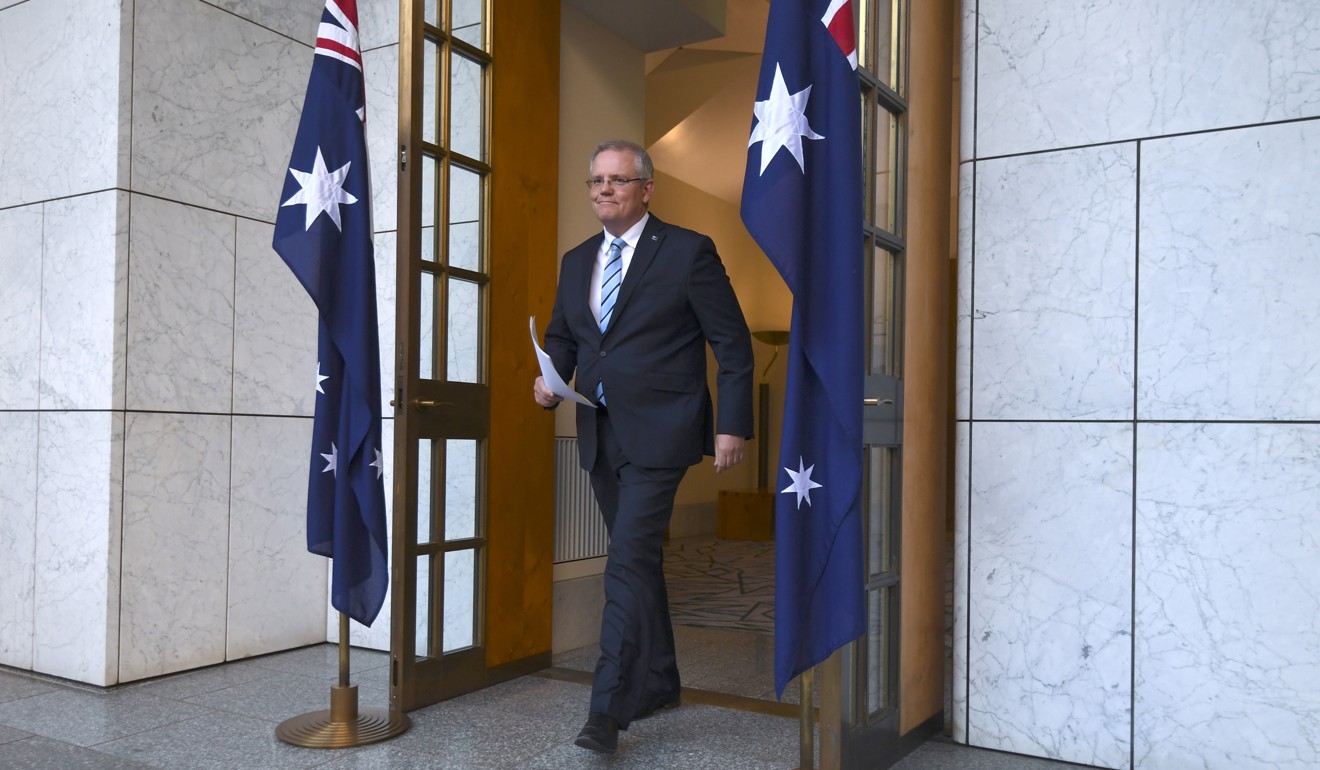
Julie Bishop quits as Australia’s foreign minister, Marise Payne takes over
The new foreign minister’s big challenge will be navigating a tricky relationship with China, Australia’s top trading partner

Australian Foreign Minister Julie Bishop resigned from new Prime Minister Scott Morrison’s Cabinet on Sunday, two days after a bruising leadership battle that toppled former prime minister Malcolm Turnbull and led to a major ministerial shake-up.
Bishop announced she would move to the backbench and had not yet decided whether to contest the next election, which is due by May 2019.
That decision could have serious implications for Morrison’s government, which has a parliamentary majority of only one seat.
She had been foreign minister since 2013 and was replaced by former defence minister Marise Payne in the new Cabinet line-up announced by Morrison after Bishop resigned.
Morrison replaced Turnbull in a party-room vote after a week of political chaos in Canberra that marked the emergence of Australia’s sixth prime minister in less than 10 years.
He took over as leader of the Liberal Party, the senior partner in a Liberal-National coalition that has consistently trailed the opposition Labor party in opinion polls in recent months.

Bishop contested Friday’s leadership vote but was eliminated in the first round, with Morrison then emerging as a surprise compromise winner over Peter Dutton, Turnbull’s conservative challenger who brought the leadership crisis to a head earlier in the week.
“I will remain on the backbench as a strong voice for Western Australia,” Bishop said in a statement soon after she arrived back in her home state.
A moderate, she reportedly garnered only 11 votes out of 85 in the leadership ballot – significantly lower than Dutton and Morrison.
A leaked WhatsApp chat between some Liberal members, revealed by the Australian Broadcasting Corporation Sunday, showed them pushing against voting for Bishop as a tactic to back Morrison, who finally emerged as the winner.

Australia has endured a turbulent period in politics that has seen six changes in the top job in 11 years.
The chaos has highlighted not just the infighting within the two major parties – Liberals and Labor – but also how politicians and the electorate view women in power.
One of the casualties was Labor’s Julia Gillard, Australia’s first female leader, who constantly battled misogyny and made international headlines for her fiery rebuttal of then Liberal opposition leader Tony Abbott in parliament in 2012.
Bishop has been candid about her experiences as the only woman among 18 men in cabinet after Abbott won national elections in 2013.
“It was pretty lonely,” the former lawyer said last year, adding that she would suggest ideas which were ignored until copied by her male colleagues.

Renowned for her steely gaze dubbed the “death stare”, Bishop’s highlights as foreign minister include her strong condemnation of Russia’s role in the shooting down of Malaysia Airlines MH17 in 2014.
The new foreign minister’s big challenge will be navigating a tricky relationship with China, Australia’s top trading partner.
In June, lawmakers overwhelmingly passed bills to crack down on foreign interference after Turnbull said change was needed to stop reported meddling by China and other nations in the nation’s government, media and universities.
However, most analysts don’t expect a significant change of direction under a Morrison-led government, particularly regarding ties with China.
While Morrison blocked a Chinese bid for electricity network Ausgrid and an iconic cattle company with vast tracts of land, that was out of “genuine concern” about foreign ownership of strategic assets, according to Richard Holden, a professor of economics at the University of New South Wales Business School in Sydney.
Morrison, who has often spoken of the strong relations between the two nations, understands the importance of foreign investment in Australia, said Holden.
But he’ll soon face one of his first big economic and foreign policy challenges, after last week banning China’s Huawei Technologies Co. and ZTE Corp. from supplying next-generation wireless equipment to the nation’s telecom operators.
That drew immediate ire from the Chinese government, which said it was “gravely concerned” by Australia’s actions.
“That’s a decision which is going to have quite some significant ramifications, not just in Australia but around the world, and certainly for the Australia-China relationship,” Andrew Parker, Sydney-based Asia practice leader at PwC’s Australian unit, said.
“That’s going to be a very significant test for Scott Morrison.”
Reuters, Agence France-Presse, Bloomberg